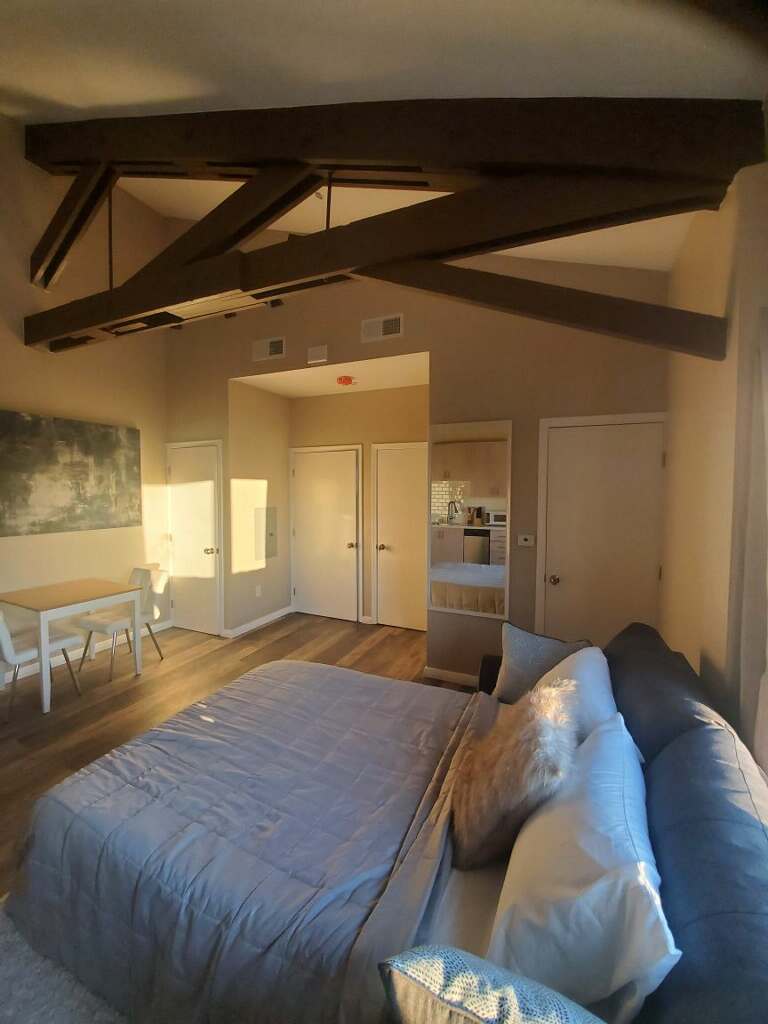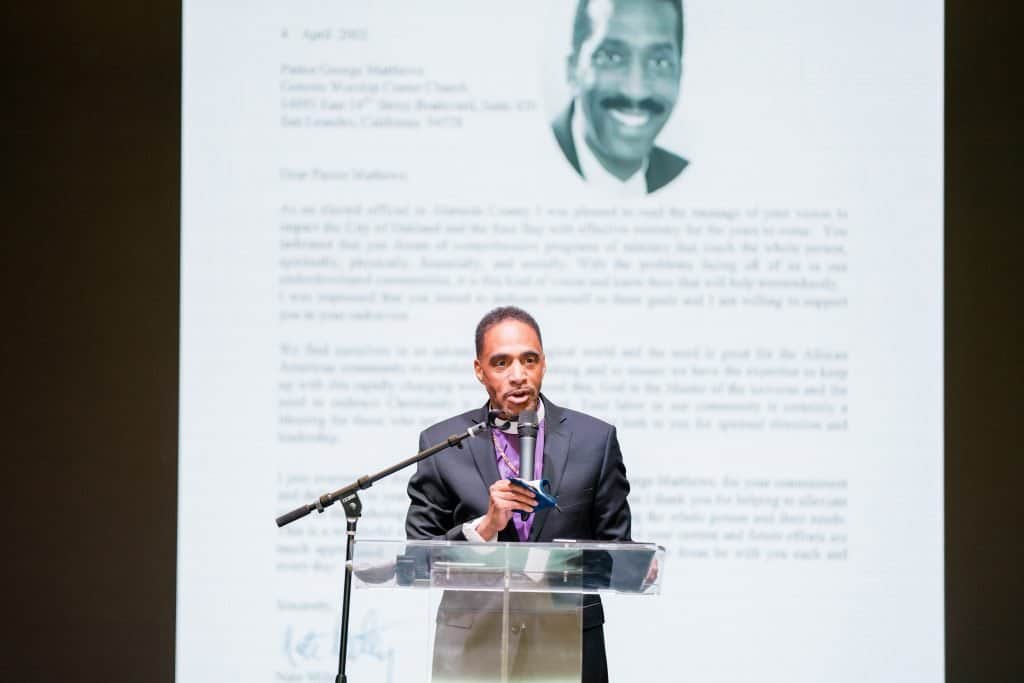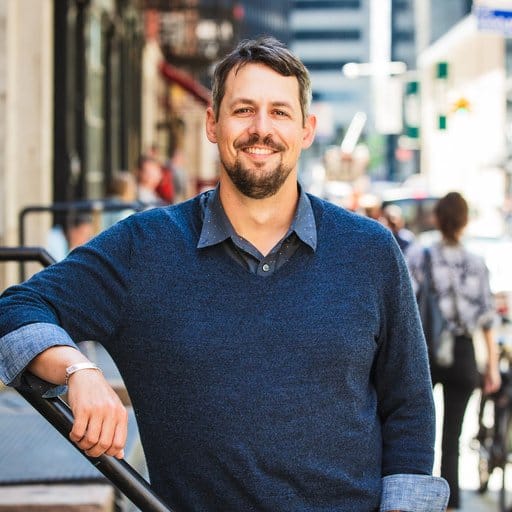“Jesus said love God with all your heart, and love your neighbor as yourself,” says Bishop George Matthews. “The way I show my love is to help them. I fulfill my mission by being a servant.”
Bishop Matthews, head of East Oakland, California’s Genesis Worship Center, has long appreciated the idea of home as instrumental to his spiritual mission. He mortgaged his own home twice to afford his congregation’s current home on Ritchie Street, a complex that included a parking lot, sanctuary and classroom, all to support his congregant’s various ministries and community efforts. But beginning this summer, home will take on a different meaning at Genesis when the first residents of a new 12-unit apartment complex recently constructed on site move in.
Matthews’s successful effort to build affordable housing on church grounds is an early example of a wave of similar projects breaking ground at faith-based institutions across the country. These efforts are being aided by a growing number of supportive institutions, which serve to guide churches through the complex process of creating affordable housing. In Genesis’s case, the $2.5 million complex, a joint project with developers New Way Homes and Envision Housing, not only provides the church with another way of serving the community, but helps support the ministry during a trying time for urban churches.
“My motivation wasn’t just my love for the community, it was also me realizing that if all my members moved out of Oakland, I won’t be there and have a ministry anymore,” says Matthews. “I tried my best to use the sanctuary and classroom for 17 years, but my small congregation of 250 only comes through on weekends.”

Bay Area cities like Oakland, and cities across the nation, have been gripped with an affordable housing crisis for years, exacerbated by the nation’s inability to build affordable units where they’re needed most. Half of Oakland’s renters are cost-burdened, meaning more than 30 percent of their incomes go to housing costs, and California will need an estimated 3.5 million additional homes by 2025 to meet the need for affordable units. (In 2019, the state started construction on just 110,218 new units).
While Bishop Matthews is the first to admit his 12 units are just a drop in a very large bucket, it’s also true that churches are uniquely positioned to help solve the affordable housing crisis. Their land is owned and controlled by them outright, often located in the middle of residential areas, free of investor concerns, and can be used to advance a core part of their faith and mission statement.
“Core to most or all faith traditions is an understanding of human dignity and that each person is a unique reflection of the divine,” says Reverend Sophia DeWitt, program director at East Bay Housing Organizations (EBHO). “Human dignity as an individual is making sure that everyone has a dignified place to shelter.”
A 2020 report by Berkeley’s Terner Center for Housing Innovation found roughly 38,800 acres of developable land in California owned by religious institutions, a combined plot the size of the city of Stockton, with 45 percent located in the state’s highest resource area (neighborhoods with lower poverty rates and greater economic and educational amenities) and 256 acres located near public transit.
Faith-based communities have traditionally played a role “at the forefront of providing affordable housing to their congregants,” says Non-Profit Housing Association of Northern California Policy Director Pedro Galvao. He points to Mercy Housing, a religious-based nonprofit housing developer. For churches with shrinking congregations and excess property, affordable housing serves not only their mission, but also themselves.

“We’ve seen a lot of population shifts in the Bay Area, and many communities that used to have large congregations have lost them,” says Galvao. “Lots of churches are land-rich and cash-poor, but also interested in sticking around and serving their communities. That’s the primary reason why so many congregations are attracted to this concept. It’s a win-win on multiple fronts.”
Bishop Matthews was able to make the development click, in part, due to his own managerial expertise. Years of being a top administrator at Hewlett-Packard gave him the organizational skills to raise funds — especially via the United Church of Christ Church Building & Loan Fund — connect with a builder and see the project through in just over two years.
“I used my marketing degree and everything I had from corporate America to run the church, and matched it with my love for God and people,” he says. “Put that together, and I’m a product of that today.”
Weighed down by negative news?
Our smart, bright, weekly newsletter is the uplift you’ve been looking for.Because not every faith leader has a background in business management, a constellation of programs have taken shape to help other church leaders do what Matthews did, teaching them the ins and outs of development timelines, construction and housing regulations. The Bay Area chapter of the Local Initiatives Support Corporation (LISC), a nonprofit Community Development Financial Institution, runs a program that is investing $1 million to train religious leaders, connect them to developers and provide small grants to get them started. (Genesis received $10,000 in support). Right now, the first cohort of church groups involved in the Bay Area program has roughly 300 units of housing in the pipeline, in various stages of design and construction, and the second cohort will be selected in July.
Other LISC chapters run similar programs in other cities, including San Antonio, which partnered with the city to help local churches build. More local California groups attempting to turn churches into developers include Making Housing and Community Happen (Pasadena), LA Voice (Los Angeles), and Yes, In God’s Backyard (San Diego). And a bill that’s repeatedly been introduced and defeated in the state legislature, SB899, would give faith institutions the ability to build 100 percent affordable housing on their land “by right,” meaning they could skip the often onerous zoning approval process.
As the contractors put the final touches on Genesis’s 12-unit complex, Bishop Matthews is as excited about what the units look like — “they’re extremely nice, dishwasher, laundry, everything is in unit, it’ll look like those apartments people are paying $2,500 a month for” — as he is for what they mean for the incoming residents. It’s also a gratifying experience building a new home — Matthews lost his own home in the 2008 housing crisis, which had a devastating impact on his family. Now, his oldest son, who will help him oversee the church housing project, will be working by his side.









